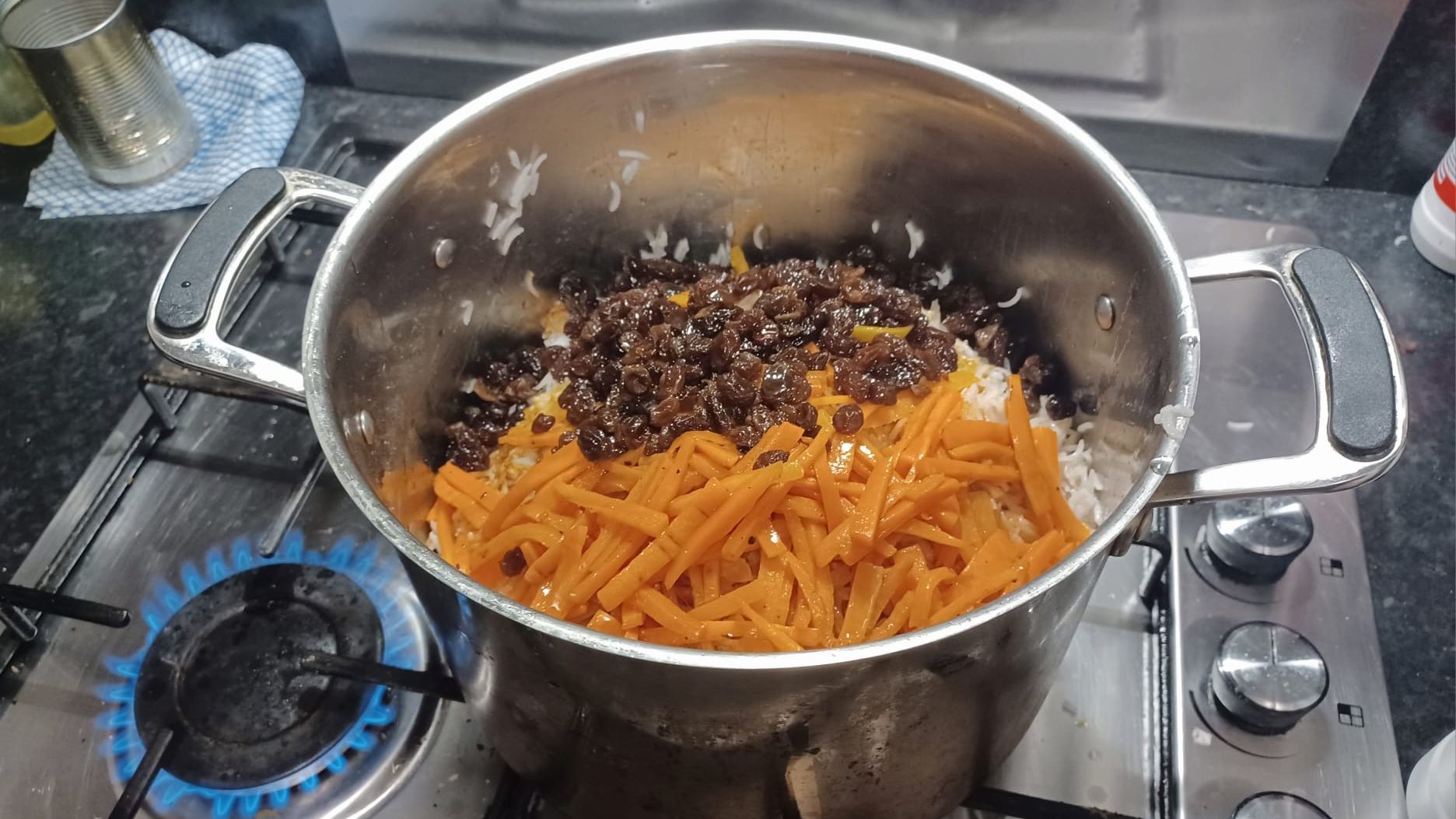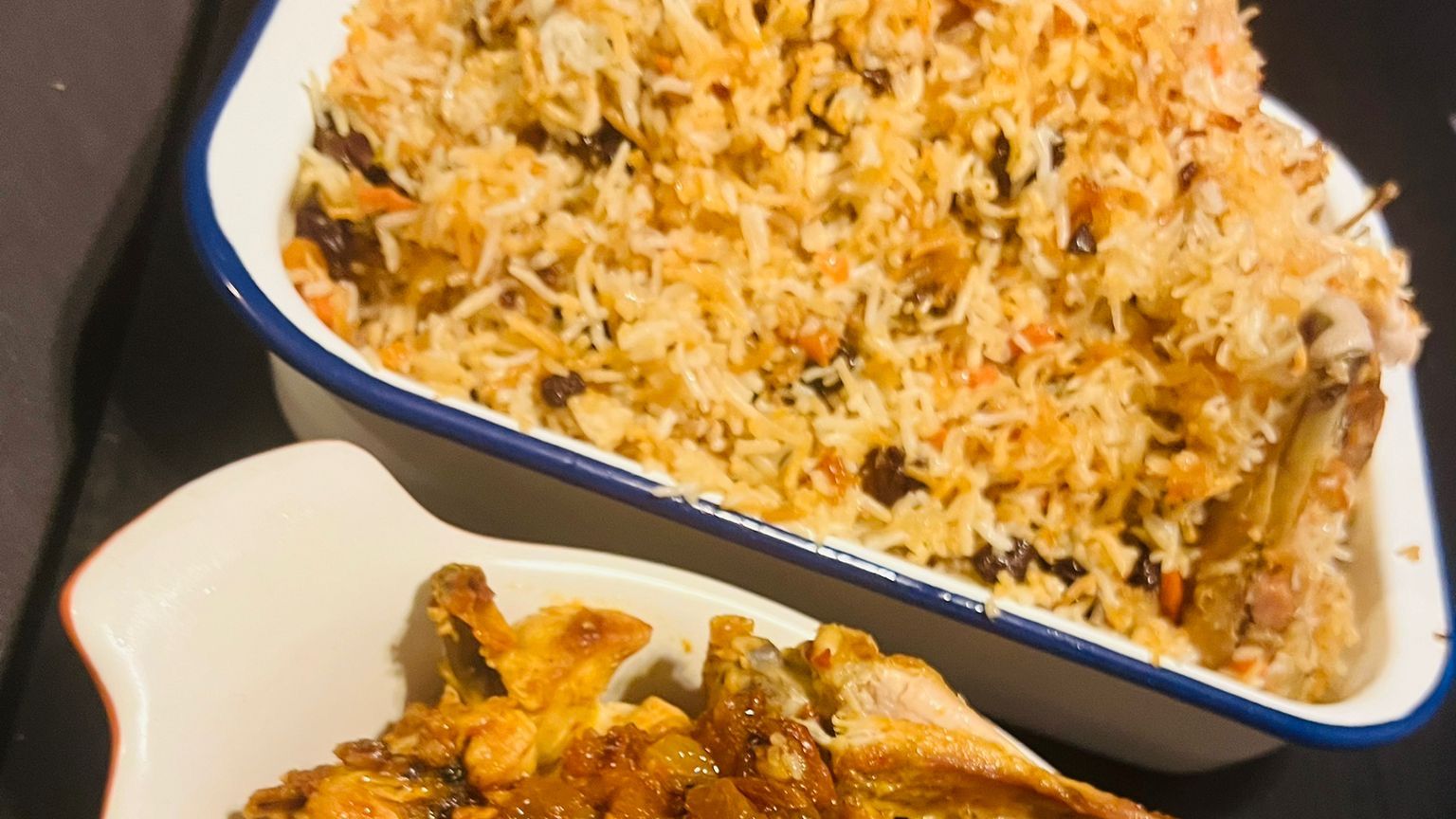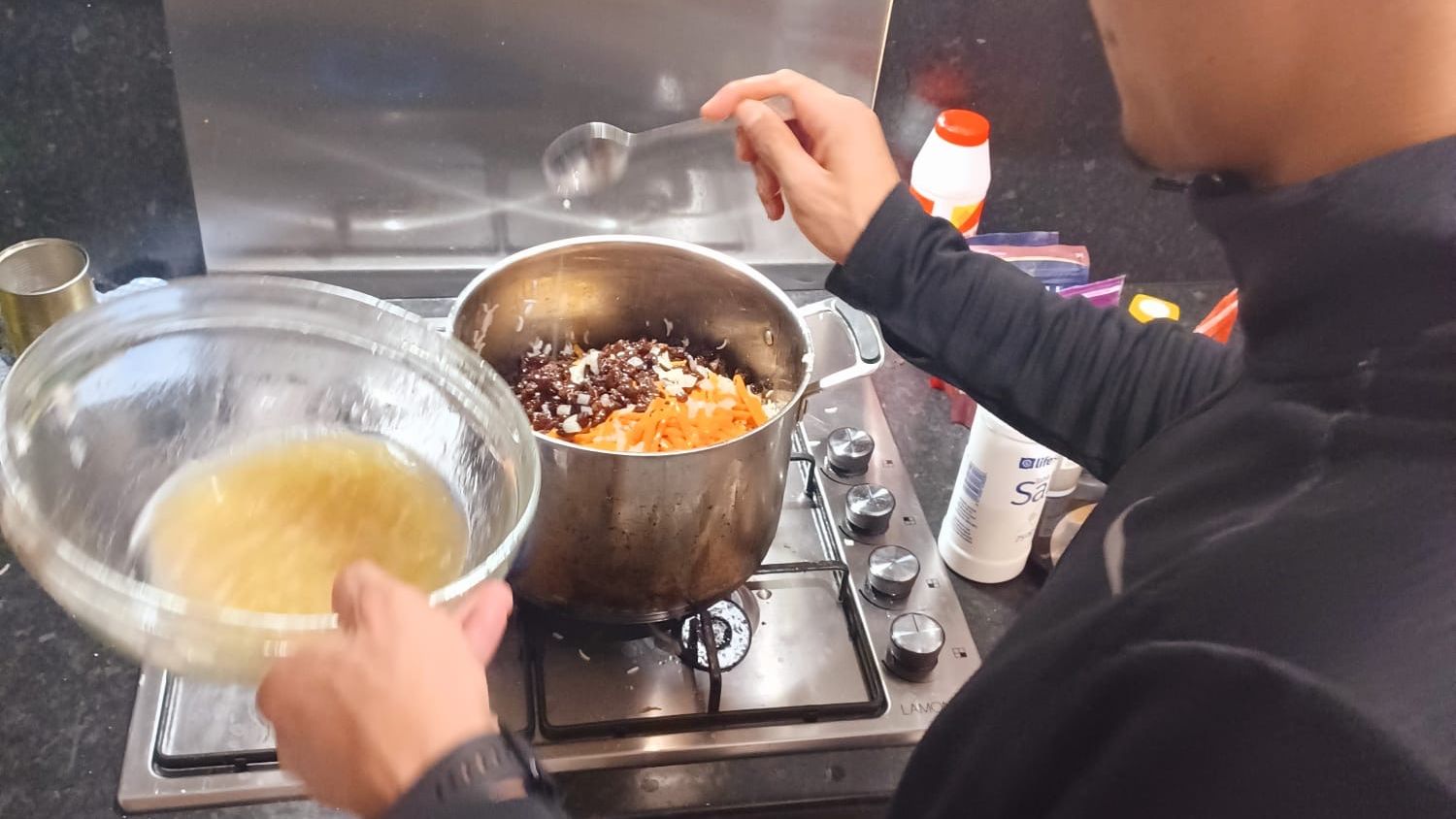Story
Abed's Kabuli Pilau Story
Do you enjoy exploring different culinary traditions and ways of eating? Have you ever tried eating with your hands or sitting on the floor before?

Imagine being a young refugee who has lost everything you've ever known—the familiar faces of loves ones, places you grew up in, and comforts of home—overcoming all the odds to arrive in a new country with hopes of safety but still facing the uncertainty of what the future will hold. The journey is far from over; without support, young refugees face serious risks of harm and exploitation. But with community, care, and stability, they can begin to rebuild their lives, find hope, and heal.
Abed*, a young Afghan refugee, shares his story in 'Come, Eat!', our recipe book, where he reflects on his cherished memories of home and the dish that brings him comfort, Kabuli Pilau. Abed’s story shows how food connects us to our roots, offering both a taste of home and the warmth of belonging. At Baca, we’re proud to be part of his journey in the UK, helping him find stability and the support to thrive.

“In Afghanistan people are very hospitable. We don’t stay in hotels or go to restaurants because we go to someone’s house to stay and eat.
This dish is very special to us because it is our country’s national dish. At home, we ate it with our families and with our friends at their homes. We would eat it regularly, maybe more than once a week because we would eat the leftovers the next day. It was also the first meal that would be served to visitors. On the next day we would serve soup. We would eat Kabuli pilau at weddings and celebrations too.
My mother was a very good cook, but I never learned to cook in Afghanistan because only the women cook at home.
When I came to the UK, I wanted to learn how to cook. At the beginning, cooking was hard for me. Every time I cooked my residential support worker helped me. I had to use YouTube and search, “how can I cook?” Now we have this book, we can teach each other at Baca.
Of course, this book is also important to teach people new tastes and to experience different cultures.
When you eat Kabuli pilau, you should eat it with your hand! Make sure your hands are clean. This is how you eat with your hand: put a bit of lamb on the top of the rice, squash or pinch the rice with your fingers a bit, then pick it up with a pinching motion, twist your hand up to your mouth like a scoop, and push the food from your hand into your mouth using your thumb. In Afghanistan, we don’t eat at a high table, we sit on the floor on a big cushion called a ‘toshack’.

If you want to make Kabuli pilau here, you can get most of the ingredients, but some are not quite the same, so you might have to make your own spice mix using the recipe for char masala (one of the recipes in Come, Eat!). I miss Afghan bread though – the bread here is not the same!"
With your support, we can provide young refugees the healing, hope, and opportunity they need to thrive.
This Christmas, bring people together by hosting a Come, Eat! Supper, inspired by recipes from young people like Abed. Every gathering helps us empower more young refugees to share their culture, reconnect with their roots, and rebuild their lives in a safe, supportive community. Together, we can make this winter a time of compassion, connection, and new beginnings.